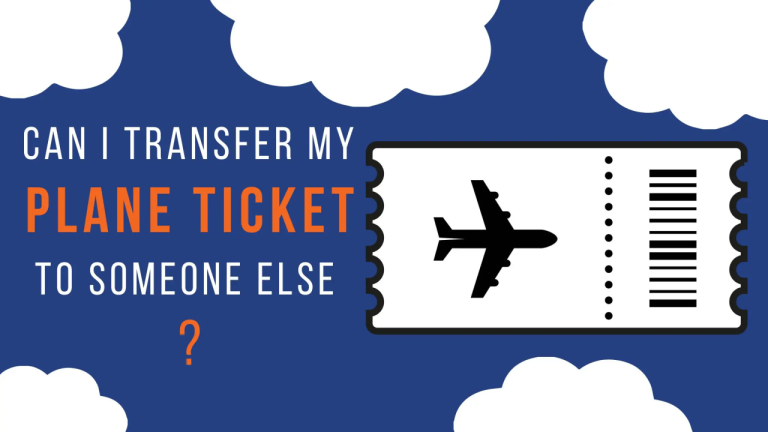Flight Changes and Name Changes: Policies and What You Need to Know
Travel plans can change unexpectedly, and knowing the policies around flight changes and name changes can help you navigate these situations without unnecessary stress. Each airline has different rules, fees, and procedures, but there are general guidelines that most follow. Let’s break down what you need to know about changing flights or correcting names on tickets.

1. Flight Changes Policy
Airlines typically allow passengers to make changes to their flights, but the specific policies, fees, and deadlines depend on the type of ticket you purchased, the airline, and the timing of your request.
Key Factors That Determine Flight Change Policies:
- Fare Type:
- Flexible Tickets: More expensive tickets usually come with flexible terms, allowing passengers to make changes without fees or with minimal fees.
- Non-Refundable/Economy Tickets: Cheaper, non-refundable tickets often come with restrictions, and changing these flights may involve higher fees.
- Timing of the Change:
- Before Departure: Most airlines allow changes before departure, but the closer to the departure time, the higher the fee may be. Some airlines impose strict deadlines, such as allowing changes only 24 or 48 hours before the flight.
- Same-Day Changes: Some airlines offer same-day change options for a lower fee or free of charge if there are seats available on an earlier or later flight on the same day.
Fees and Penalties:
- Change Fees: Airlines typically charge a fee for making changes, which can range from $50 to $200 or more, depending on the airline, route, and class of service. Some budget airlines may charge even higher fees.
- Fare Difference: In addition to change fees, if the fare for the new flight is higher than your original ticket, you will need to pay the difference.
- No Fare Difference Refunds: If your new flight is cheaper than the original, most airlines will not refund the fare difference, though some may offer a travel voucher for the difference.
Airlines with Flexible Change Policies:
Post-pandemic, many airlines have relaxed their change policies. Here are a few examples:
- Delta Air Lines, United Airlines, American Airlines (US-based): Have eliminated change fees for most domestic and international flights (except for Basic Economy fares).
- Emirates and Qatar Airways: Often offer generous change policies, allowing flexibility in the case of unforeseen circumstances.
2. Name Changes and Corrections Policy
Name errors on flight tickets are common, but they must be corrected before travel, as most airlines require that the name on the ticket exactly matches the name on the traveler’s government-issued ID or passport. Policies around name changes vary by airline, but here’s a general outline:
Name Correction vs. Name Change:
Name Correction: This involves fixing minor mistakes such as typos or switching the order of first and last names. Most airlines allow minor name corrections for free or a small fee. For example, correcting a typo like “Jhn” to “John” is usually straightforward.
Name Change: A complete name change (e.g., transferring a ticket to another person or changing the full name) is rarely allowed. Most airlines do not permit transferring a ticket to another individual, as tickets are generally non-transferable. In rare cases (e.g., after a legal name change), airlines may allow changes, but it typically requires documentation such as a marriage certificate or court order, and the fees can be significant.
Typical Airline Policies on Name Corrections:
- Minor Typographical Errors: Most airlines allow corrections of up to three letters for free or for a nominal fee.
- Misspelled First or Last Name: Airlines generally allow you to correct your first or last name, but you should do this as soon as you realize the error, as it becomes more difficult to fix close to departure.
- Middle Names: Middle names are generally not required on tickets, so if you’ve forgotten to include your middle name, there’s usually no need for concern.
- Reversed Names (First and Last): Many airlines will correct this error without a fee, but you need to contact the airline as soon as possible.
Documents Required for Name Changes:
If you’ve legally changed your name (e.g., due to marriage or divorce), you’ll likely need to provide supporting documentation to process the name change. Airlines will ask for:
- A marriage certificate.
- A court order showing the legal name change.
- Government-issued ID with the new name.
How to Make Changes (Flight or Name):
Flight Changes:
Online: Many airlines allow you to make flight changes directly through their website or mobile app. Look for the “Manage Booking” section, where you can check your eligibility for changes and review the fees involved.
Contact Customer Service: If you can’t change your flight online or if you have a special request, it’s best to contact the airline’s customer service or visit their ticket office. Be prepared with your booking reference number and personal details.
Travel Agents or Third-Party Bookings: If you booked through a travel agent or a third-party website, you might need to contact them to make any changes to your booking.
Name Changes:
Call the Airline: For name corrections, it’s often quicker to contact the airline directly. They may ask for documentation, such as your passport, and may charge a fee depending on the type of change.
Provide Legal Documents: For significant name changes, such as after marriage or divorce, be prepared to send in official documents that prove the name change.
Examples of Airline Policies:
Emirates
- Flight Changes: Emirates allows passengers to change flights for a fee, plus any fare differences. During the COVID-19 pandemic, Emirates relaxed these rules, allowing free changes in certain cases.
- Name Changes: Minor spelling mistakes (up to 3 characters) can be corrected without charge. Full name changes are not allowed.
Qatar Airways
- Flight Changes: Qatar Airways offers flexible flight change policies for some fare types. If you change a flight and the new fare is higher, you will need to pay the difference.
- Name Changes: Minor corrections to the spelling of names are allowed for free or a small fee, but complete name changes or transferring a ticket are not permitted.
American Airlines
- Flight Changes: American Airlines eliminated change fees for most domestic and international flights, except for Basic Economy tickets.
- Name Changes: Name corrections are allowed for free, but full name changes or ticket transfers are generally prohibited.
Tips for Avoiding Flight Change and Name Issues
Double-Check Information: Always double-check your name and flight details before completing the booking to avoid the hassle of corrections later.
Book Flexible Fares: If you think your plans might change, it’s worth investing in a fare that allows changes without a fee. Many airlines now offer “no-change-fee” options, especially for higher-class tickets.
Purchase Travel Insurance: Travel insurance can help cover the costs of flight changes or cancellations due to unforeseen events, reducing the financial impact of changes.
Final Thoughts
Flight changes and name corrections can be relatively simple if you understand the airline’s policies and act quickly. Being proactive—double-checking your information at booking, knowing the fees involved, and using the airline’s digital tools—can help make the process smoother. If you’re uncertain about the policies, always reach out to the airline’s customer service for clarification to ensure a hassle-free travel experience.
